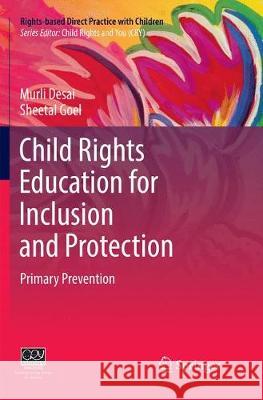Child Rights Education for Inclusion and Protection: Primary Prevention » książka
topmenu
Child Rights Education for Inclusion and Protection: Primary Prevention
ISBN-13: 9789811344114 / Angielski / Miękka / 2018 / 343 str.
Kategorie:
Kategorie BISAC:
Wydawca:
Springer
Seria wydawnicza:
Język:
Angielski
ISBN-13:
9789811344114
Rok wydania:
2018
Dostępne języki:
Numer serii:
000813512
Ilość stron:
343
Oprawa:
Miękka











